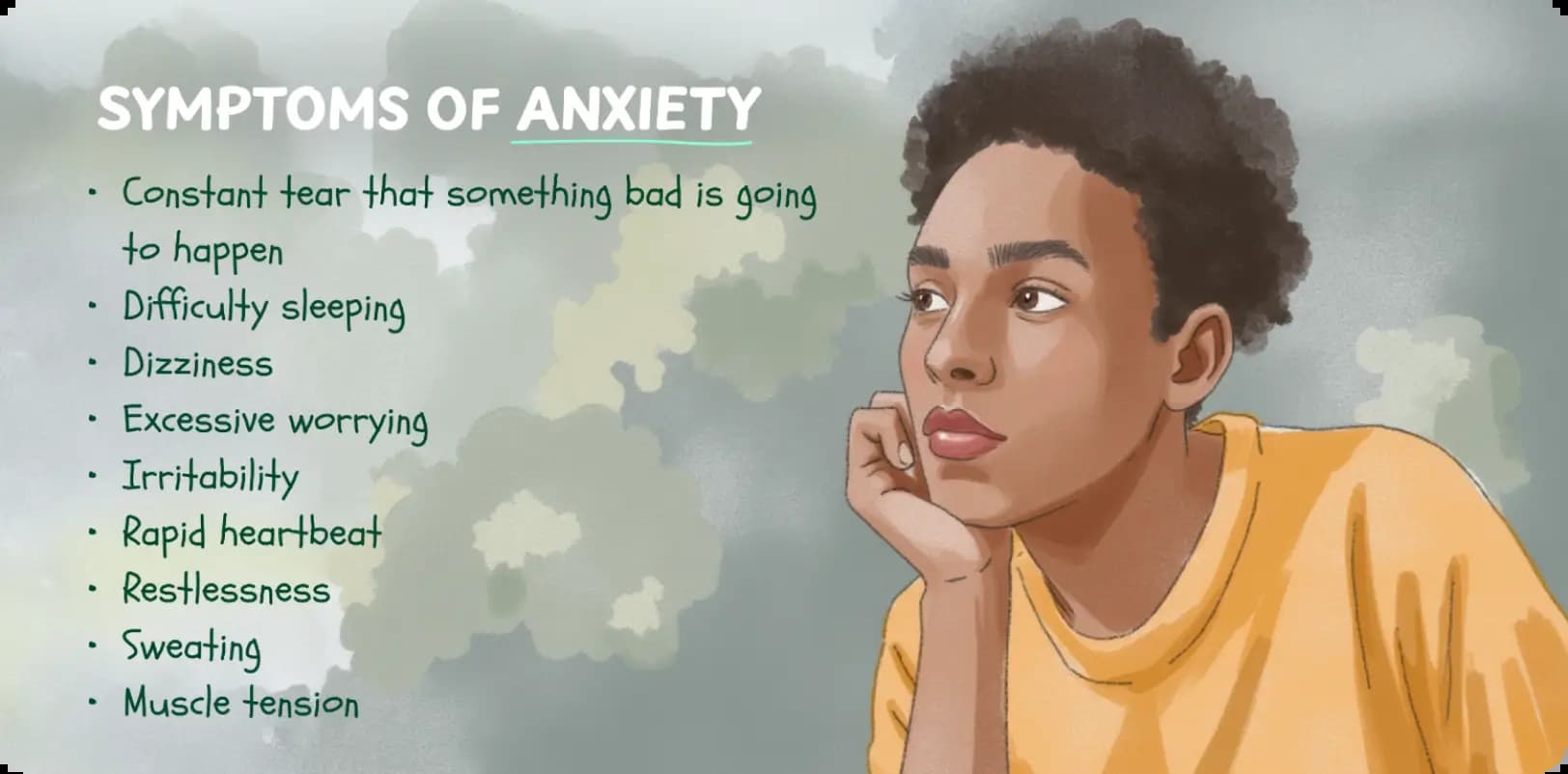

Take the first step toward a calmer state by taking the anxiety inventory.
By:
Breeze Editorial Team
Clinically Reviewed By:
Emily Mendez, M.S., Ed.S
25.05.2025
Disclaimer: This online quiz is for informational purposes only and is not a substitute for professional medical advice, diagnosis, or treatment. Only a qualified healthcare professional, such as a doctor or licensed mental health provider, can accurately assess and diagnose medical or psychological conditions. If you have concerns about your mental health, we strongly encourage you to seek guidance from a healthcare professional.
Unease feelings, like worry or fear, can be mild to severe. These are the main signs of anxiety, which is a common emotional state. At some point or another, most of us feel anxious. But what happens if the anxiety lasts longer? Take this free “Do I Have Anxiety?” test to find out if you are anxious and how anxious you are.
Mental health professionals created this anxiety test online to help find adults who might be showing signs of anxiety. It is based on clinically validated assessments like the GAD-7 (Generalized Anxiety Disorder 7-item scale), which screens for common anxiety symptoms. [1]
If you have been feeling worried, tense, or anxious lately, this self-test can also help you figure out what to do next. Knowing and dealing with these feelings is very important if they do not go away or get in the way of daily life. It is not a diagnosis, but it can help you understand what is happening and figure out what to do next.
This short 20-question anxiety symptoms test will tell you if you have a problem with anxiety. For this, reread each question and answer in a way that shows how you really feel. Answers are needed for all queries to get your results.
Once you are finished, you will get the result. In addition, Breeze will provide you with a personalized healing plan to help you manage your anxiety symptoms.
This test is for anyone who is curious about the level of their anxiety or is concerned that they may be experiencing symptoms of GAD. Designed for adults, this examination is not intended to serve as a diagnostic tool.
If you believe that the symptoms of generalized anxiety are interfering with your personal or professional life, you should consult with a mental health professional to learn how to manage them effectively.
Anxiety as a normal response to potential danger or stress can be helpful, as you think of ways to solve a problem. When the body senses a threat, it naturally shuts down and feels more alert. Usually, we can control or "switch off" our everyday alertness or worries if the environment is safe.
Some people, however, struggle with excessive worry and anxiety that they feel unable to control even in a comparatively safe environment. Anxiety disorders like this are called generalized anxiety disorder (GAD). [2]
Generalized anxiety disorder (GAD) is a mental condition that results in excessive worry about commonplace issues, fear, and a persistent sense of overwhelm. An estimated 5.7% of U.S. adults experience generalized anxiety disorder at some time in their lives. [3]
People with GAD typically experience high levels of worry and anxiety for at least six months. A lot of the time, they worry about trivial things and unlikely events, they worry about what might happen in the future rather than what is happening now.
GAD is a complex combination of genetic, biological, and environmental
factors. People with a first-degree biological relative are at higher risk of
developing it. About 30% of the risk of developing GAD, according to
researchers, may be inherited genetically. [4]
Additionally, anxiety
disorders can stem from environmental factors like traumatic events, stressful
environments, chronic illness management, and child abuse. [5] What's more,
panic attacks may occur during periods of significant stress or following a
stressful event.
People who suffer from chronic anxiety often encounter a range of symptoms, including:

The standard treatment for generalized anxiety disorder involves either medication, psychotherapy, or both.
Emily Mendez is a former therapist and mental health writer. She is one of the leading voices in mental health. Emily has an ED.S. in Mental Health Counseling and a MsED in Counseling from Indiana University in Bloomington, Indiana. She also has a bachelor’s degree in psychology from Indiana University, Purdue University in Indianapolis.
Emily Mendez is a former therapist and mental health writer. She is one of the leading voices in mental health. Emily has an ED.S. in Mental Health Counseling and a MsED in Counseling from Indiana University in Bloomington, Indiana. She also has a bachelor’s degree in psychology from Indiana University, Purdue University in Indianapolis.
Frequently Asked Questions
Spitzer, et al. Generalized Anxiety Disorder 7-item (the GAD-7)
Diagnostic and Statistical Manual of Mental Disorders, 5th edition
Harvard Medical School, 2007. National Comorbidity Survey (NCS). (2017, August 21)
Gottschalk MG, Domschke K. Genetics of generalized anxiety disorder and related traits. Dialogues Clin Neurosci. 2017
Newman MG, Shin KE, Zuellig AR. Developmental risk factors in generalized anxiety disorder and panic disorder. J Affect Disord. 2016